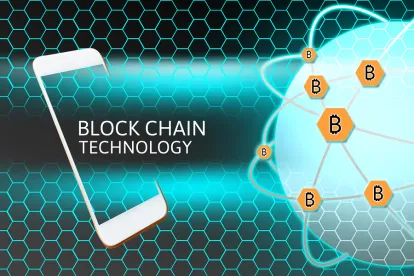Last month, SEC chairman Jay Clayton and CFTC chairman Christopher Giancarlo testified before the Senate Banking Committee on their agencies’ regulatory efforts with respect to cryptoassets and ICOs. The written testimonies of chairmen Clayton and Giancarlo, as well as their verbal statements at the hearing itself, shed light on various issues including: how tokens might be categorized; the desirability of targeted legislative action to address jurisdictional gaps in the cryptoasset marketplace; coordination among regulators; forthcoming enforcement actions; and the general long-term prospects of cryptoassets and blockchain technology.
Below, we highlight some essential takeaways and remaining open questions.
Categorizing cryptoassets: security tokens versus “pure cryptocurrencies”
Chairman Clayton’s testimony repeatedly invoked a conceptual distinction between tokens he referred to as “pure cryptocurrencies,” on the one hand, and tokens distributed pursuant to an ICO on the other. He asserted that he (personally) had “not seen a single ICO” issue a token that is not a security, and juxtaposed such tokens against “pure” cryptocurrencies “that, at least as currently designed, promoted and used, do not appear to be securities.” Chairman Giancarlo, meanwhile, reiterated the CFTC’s position that cryptoassets constituting “virtual currencies” are commodities subject to regulation under the Commodities Exchange Act.
Categorizing cryptoassets in this way is quite consistent with the public statements, targeted enforcement actions and agency reports released by the SEC and CFTC thus far. Nevertheless, at the margins, important questions remain:
What is a “pure” cryptocurrency?
Neither chairman set forth a clear, principled basis for determining which tokens are actually included in this category. One way to approximate the distinguishing characteristics of a pure cryptocurrency would be to reason backward from the assumption that Bitcoin is such a token. But this immediately raises issues. As Chairman Clayton himself pointed out, and many others have argued, the status of Bitcoin as a functional “currency” is itself strongly contested. Do cryptoassets need to be widely used as currency in order to qualify as pure cryptocurrencies? If not, then what are the requirements?
Are pre-functional utility token offerings categorically untenable?
There is a relatively long-standing notion in the ICO marketplace today that if a token possesses a certain degree of “utility,” which confers value over and above its prospects as an investment, then its distribution might not constitute the sale of a security.
In their Munchee cease and desist order, the SEC threw cold water on that argument as applied to a token (i) issued with no immediate functional utility, (ii) marketed in a manner that targeted investors rather than end-users, and (iii) sold on the promise of profits to be derived from the ongoing managerial efforts of others. The order emphasized the SEC’s position that the manner in which a token is offered and sold bears on whether it will be considered a security, and that tokens absolutely do not fall outside the reach of the federal securities laws merely because they do or will possess some stated utility.
At the hearing, Chairman Clayton perhaps took the SEC’s stance in Munchee a step further. Responding to a question about tokens that would allow holders to purchase digital storage space from a yet-to-be-built decentralized network of providers, Chairman Clayton stated, “if you’re giving people money, in exchange for a future development of a business, in exchange for a return, and whether that return comes in the form of server time, or your ability to sell server time, it’s a security.”
Does this mean that ICOs of pre-functional utility tokens might qualify as securities regardless of the anticipated functionality of that token or the manner in which it is offered and sold? If so, this line of reasoning would seemingly implicate a wide range of products not currently considered securities, and raises questions as to whether, or under what circumstances, pre-sales of consumptive goods with secondary market profit potential can avoid SEC scrutiny. It also implicates certain cryptoassets that may or may not be securities, such as Ether.
What about Ether?
If Chairman Clayton has not seen a single ICO token that is not a security, it begs the question whether Ether, the native token of the Ethereum blockchain, falls within this definition.
Ether was discussed in the SEC’s DAO Report as a form of payment used to participate in the DAO Token ICO; and indeed, Ether remains a predominant means of participation in such offerings. Moreover, by design, Ether is consumed as virtual “fuel” that is required for applications to run on the Ethereum network. Thus Ether today exhibits characteristics of both a “virtual currency” and a “utility token.”
Yet the Ethereum Foundation raised $18 million in 2014 from an ICO that offered and sold Ether to U.S. purchasers prior to the launch of a functional network. So is Ether a security? If not, was Ether once a security that, at some point, somehow “transformed” into a merely a commodity?
More, what we call “Ether” today is actually the byproduct of a hard fork from the original Ethereum blockchain. So did Ether – as opposed to Ethereum Classic – even ICO? What, according to the SEC, is an ICO? Do certain forks qualify? Airdrops? Tokens issued pursuant to SAFTs?
The reach of, and gaps in, SEC and CFTC jurisdiction over cryptoasset market activity
A second point of focus at the hearing was the scope of the SEC and CFTC’s authority to effectively regulate the cryptoasset marketplace. According to the chairmen, the SEC and CFTC collectively have jurisdiction over most – but critically, not all – market activity involving cryptoasset transactions in the United States.
Jurisdiction of the SEC
Chairman Clayton’s testimony reaffirmed that, to the extent tokens (or financial products linked to tokens) constitute “securities,” they are firmly within the jurisdictional ambit of the SEC. In such cases (which, to be sure, includes at least most if not all ‘conventional’ ICOs to date), the federal securities laws impose a comprehensive regulatory framework to govern the token’s offer and sale to U.S. investors.
However, as Chairman Clayton also noted, not all tokens appear to be securities. Such tokens remain outside the direct reach of the federal securities laws.
Jurisdiction of the CFTC
According to Chairman Giancarlo, the CFTC’s position that “virtual currencies” are commodities bears on the CFTC’s jurisdiction to regulate cryptoasset markets on two levels.
With respect to markets for derivatives on virtual currencies, the CFTC asserts jurisdiction to impose what Chairman Giancarlo described as “comprehensive regulatory oversight, including [the ability to implement] registration requirements and compliance with a full range of requirements for trade practice and market surveillance, reporting and monitoring and standards for conduct, capital requirements and platform and system safeguards.”
With respect to virtual currency spot markets, however, the CFTC’s authority is comparatively limited. As Chairman Giancarlo explained, the CFTC can bring enforcement actions for fraud and market manipulation involving contracts of sale for virtual currencies in interstate commerce. But the CFTC does not possess what Chairman Giancarlo referred to as “regulatory authority” over commodity spot markets; meaning it lacks the ability to impose affirmative duties and prophylactic rules and standards on spot market participants, such as the CFTC possesses when regulating derivatives and the SEC possesses when regulating securities.
The federal regulatory “gap”: spot markets for non-security tokens
The upshot is that there is a prominent gap in the federal government’s ability to regulate non-security token spot markets. The testimony of both chairmen keyed in on this jurisdictional limitation, and emphasized that where market activity is subject to comprehensive federal regulatory authority, Main Street purchasers are provided with substantially greater protections. For instance, considering cryptocurrency exchanges (which are currently regulated largely by a patchwork of state-by-state money transmission licensing regimes), Chairman Clayton stated that “investors transacting on these trading platforms do not receive many of the market protections that they would when transacting through broker-dealers on registered exchanges or alternative trading systems, such as best execution, prohibitions on front running, short sale restrictions, and custody and capital requirements.”
In light of such considerations, and at the request of the Senate Banking Committee, the chairmen stated that the SEC and CFTC would get together with other relevant regulatory agencies to develop a coordinated plan to deal with cryptoasset markets, including, potentially, a request for additional statutory authority to address this perceived regulatory gap.
Interagency coordination
Ready coordination is already taking place among various federal, state, and even international agencies in response to the regulatory challenges posed by cryptoassets. As the chairmen described, the SEC and CFTC are engaged in ongoing discussions with one another, state banking regulators, the IRS, FinCEN, the FBI, FSOC and IOSCO on various issues relating to the regulation of cryptoasset market activity.
Further enforcement on the horizon
Chairman Clayton and Chairman Giancarlo were open in stating that they would continue to police the cryptoasset markets and come down hard on violators. Indeed, subsequent action by both the CFTC and SEC in recent weeks suggests that their agencies are ramping up investigatory and enforcement activities.
Measured optimism
While qualified with numerous caveats, both chairmen, along with several senators, expressed sincere enthusiasm for the promise of blockchain technology (along with, in some instances, cryptoassets themselves). Chairman Giancarlo perhaps best characterized the tone of measured optimism that permeated the hearing, stating that, as regulators, “We owe it to this new generation to respect their enthusiasm about virtual currencies with a thoughtful and balanced response, not a dismissive one. And yet we must crack down hard on those that try to abuse their enthusiasm with fraud and manipulation.”





 />i
/>i

